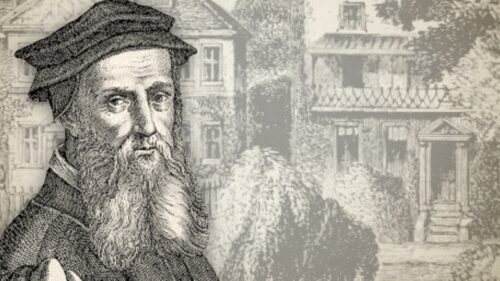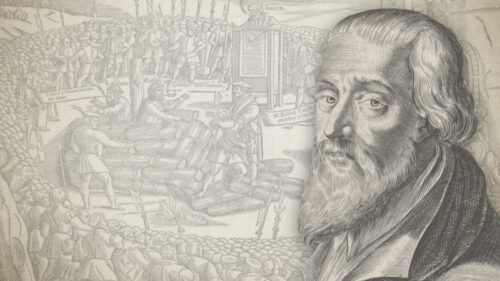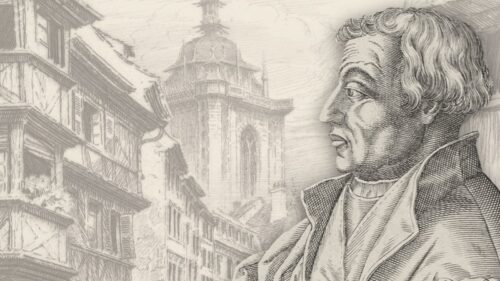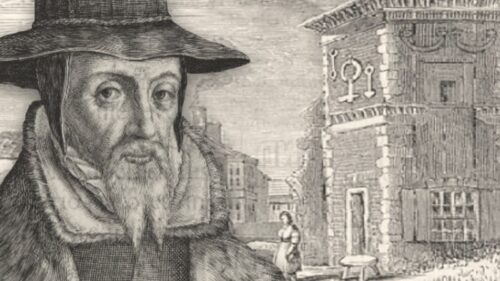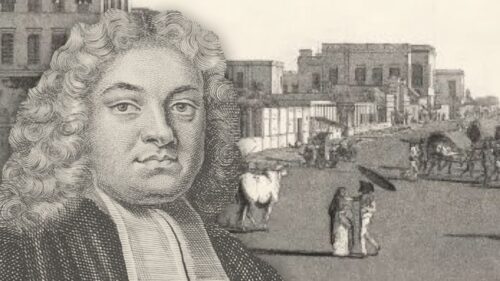-
John Albert Bengel
John Albert Bengel was born in Winnenden near Stuttgart on 24 July, 1687, the son of scholar-deacon Martin Albert Bengel. Martin Bengel took care of John’s early education but died of ‘an epidemic fever’ when John was six years of age. Then Louis XIV’s troops plundered the Bengels’ home and burnt it to the ground, destroying Martin Bengel’s valuable library which would have been a great support in John’s further education. Of these years of hardship, John testified that his best teacher was God Himself and that at his father’s death, he received a firm conviction that his Heavenly Father would be his best parent and educator. He began to pray fervently, read the Scriptures and devotional books and sought to walk worthy of God…
-
Christopher And Mary Love: Like Name, Like Nature A True Love Story
Christian writers usually stay clear of human love stories, perhaps thinking that narratives of marital fidelity and devoted loyalty, at their best, are but weak reflections of spiritual love devoted to Christ. However, the one in no way negates the other and the history of the Church presents us with some of the most beautiful love stories on record which have sadly not been given the pastoral and edifying role they deserve. One of the greatest love stories this writer has ever read is that of Christopher and Mary Love. Their deep fondness and loyalty to each other prove both a romantic and spiritual inspiration for both Christian and non-Christian alike. Furthermore, in stories of great men of God, wives are often given a subordinate…
-
Gerhard Tersteegen (1697-1769): Poet of Eternity
Gerhard Tersteegen is best known to English-speaking Christians through his hymns translated by Emma Francis Bevan, Francis Elizabeth Cox, William Delamotte, Sarah Findlater (with her sister Jane Borthwick), Melanchthon Woolsey Stryker, John Wesley and Catherine Winkworth. Most of these translation are, as Lady Durand confesses concerning her own renderings of Tersteegen, ‘imitations’ rather than translations and the numerous Tersteegen hymns to be found in English often lack the plaintive mourning of the poet over his sin, his sweet serenity in contemplating his salvation and his deep inward joy in believing. Tersteegen is now chiefly known for his poetry and hymns but in his own day, it was his preaching that moved men most. Emily Chisholm and Samuel Jackson have made some of Tersteegen’s sermons and…
-
Carl Olof Rosenius: And The Great Swedish Awakening
In the summer of 1960, I found myself in Northern Sweden helping Frans-Oscar Linde, a missionary to the Lapps. I was under great apprehension because I had recently sat for the London University Advanced Level General Certificates of Education with a view to continuing my course at London Bible College and matriculating for a London University BD degree. Two events put me at ease. First, a friendly pastor gave me a book called Korta dagbetraktelser by Carl Olof Rosenius. It was a collection of exquisite spiritual gems of daily readings throughout the year. After my conversion in Sweden, I had studied dry, Liberal works on the Bible and Church History in preparation for my A level in ‘Religious Knowledge’ so it was a real delight…
-
Paul Gerhardt And The Poetry Of Piety
Nowadays, it appears that our congregations seldom sing hymns depicting the sacrificial sufferings of Christ on the cross. When biographer Hugh I’Anson Fausset read William Cowper’s triumphant atonement hymn ‘There is a fountain filled with blood drawn from Emmanuel’s veins’, he reacted in disgust, calling the language ‘crude salvationism’, ‘barbarous’ and ‘hysterical’. This is perhaps why most of Paul Gerhardt’s 150 hymns, often sung by our fathers in the faith, are now almost unknown to the Christian youth of today. So, too, Gerhardt combined his teaching of Christ’s shed blood with hymns of solemn warning to unrepentant sinners and backsliding saints. Again, hardly themes for modern wishy-washy evangelism where Christ is presented as ‘Everybody’s Saviour’ whom we must love out of a sense of duty. …
-
James Petigru Boyce (1827-1888): The Forgotten Baptist
When Christian conversation comes round to the topic of Systematic and Historical Theology, everybody seems to have a favourite. The first major theological book I ever owned on the subject was Berkof’s Systematic Theology given to me by my mother almost forty-five years ago. His Historical Theology soon followed. I then read Sheldon, Fisher, Bicknell, Gibson, Griffith Thomas, Dagg, the Hodges, Bavinck, Dabney, Shedd and others whose names I have long forgotten. I never forgot Berkof and still turn to him regularly for guidance. In recent years, however, he has received some earnest competition. In 1998, during a visit to a Founders’ Conference in Mansfield, Texas, I was given a copy of J. P. Boyce’s Abstract of Systematic Theology. When I confessed my ignorance of…


